Home

Fiscal policy directly shapes the future and opportunities of young people — from tackling the climate crisis to ensuring quality education and advancing digital transformation. We equip young people to actively engage in financial policy debates and amplify their collective voice in the public sphere. At the same time, we make sure their perspectives are represented and strengthened in the development of fiscal policy.
Strengthening the voice of young people:
In exchange with political decision-makers
Fiscal policy is a key policy field for future generations. Across the party spectrum, all political parties, justify their fiscal policy measures on the same argument: intergenerational justice. However, young voices are rarely heard and included. Therefore, FiscalFuture builds bridges not only accross generations, but also accross political parties in order to strenthen the voice of young people in the debates on fiscal policymaking. As a non-partisan and non-profit organization, we are in a trusted exchange with relevant stakeholders and political decision-makers from all democratic parties in Parliament.
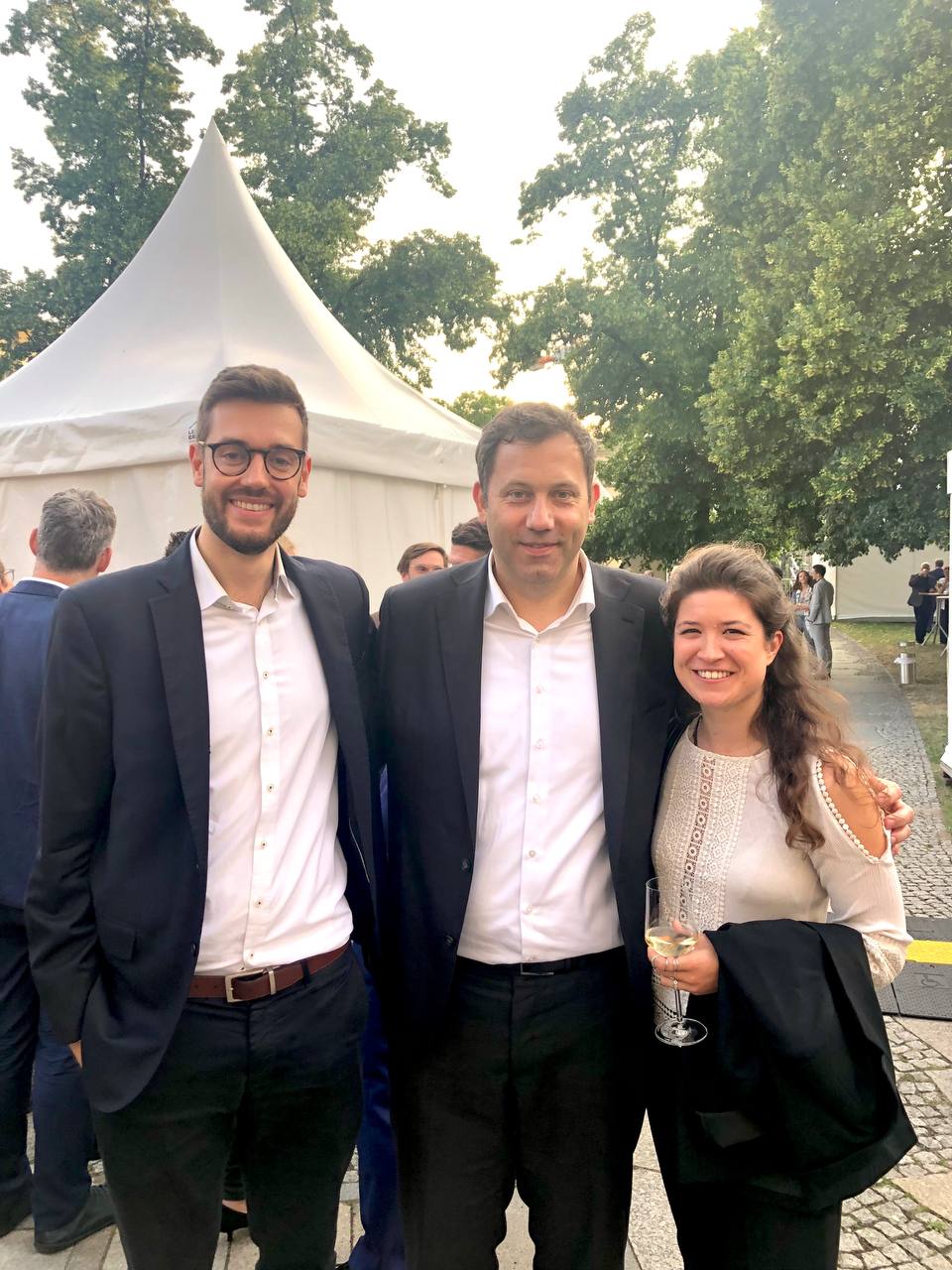
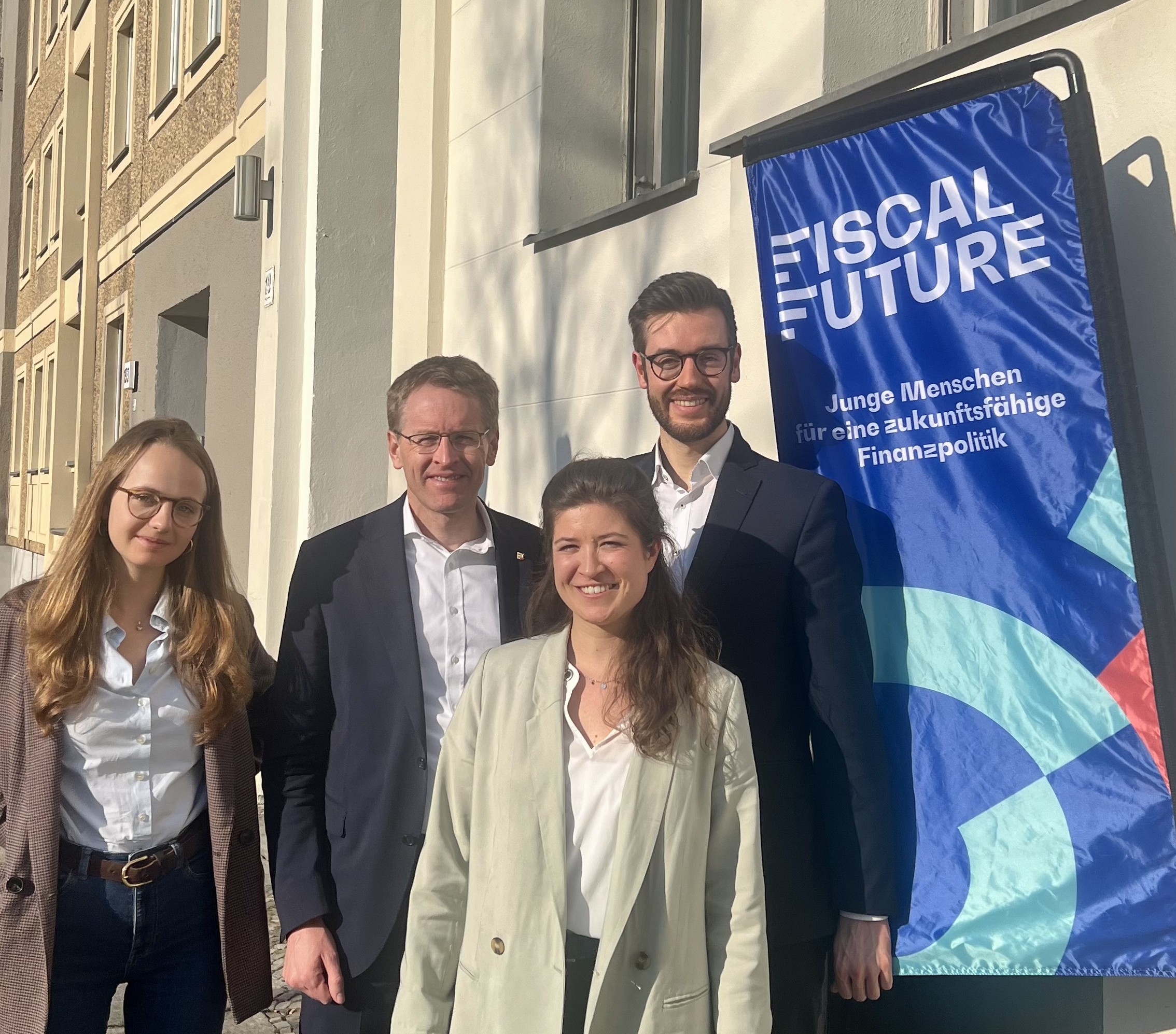
Shaping and Shifting the discourse: Intergenerational Justice in Fiscal Policy
In the public media discourse, we frequently provide our expertise in fiscal policymaking as well as our unique perspective, representing the interests of future generations in this central field. We publish op-eds or give interviews commenting on the newest developments in German fiscal policymaking, the role of investments for future generations or the interplay between German and European fiscal rules. Our presence in the public debate allows us to amplify the interests and voices of young people where they would not be heard otherwise.
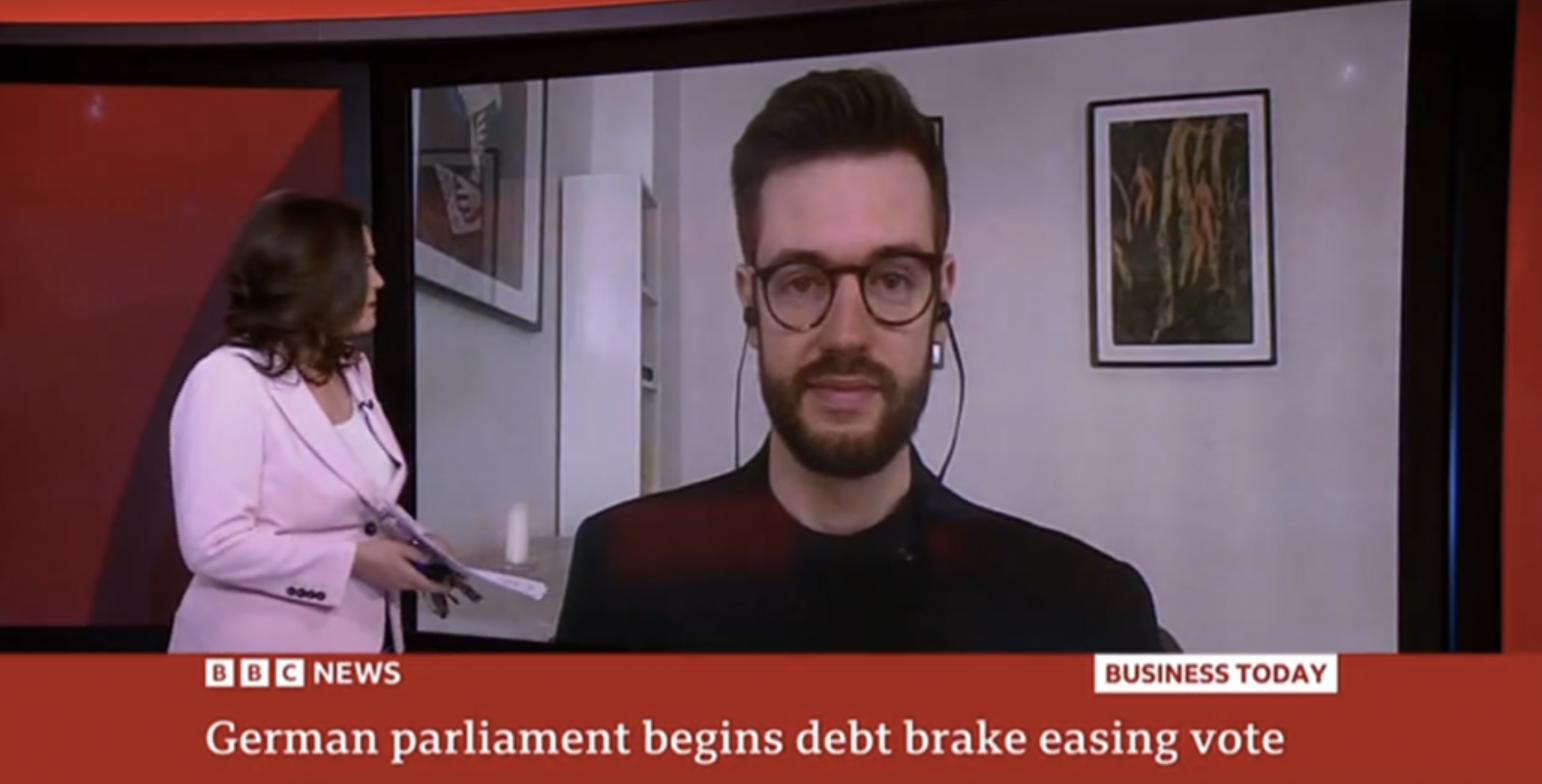
We regularly contribute to discussions on economic and fiscal policy – across television, radio, print, and international platforms. For example, on September 18, 2025, Carl Mühlbach was a guest on the Phoenix talk show Phoenix Runde, discussing the topic “Debt for the Future – Is the Black-Red Government Investing Wisely?” Rewatch here (German).
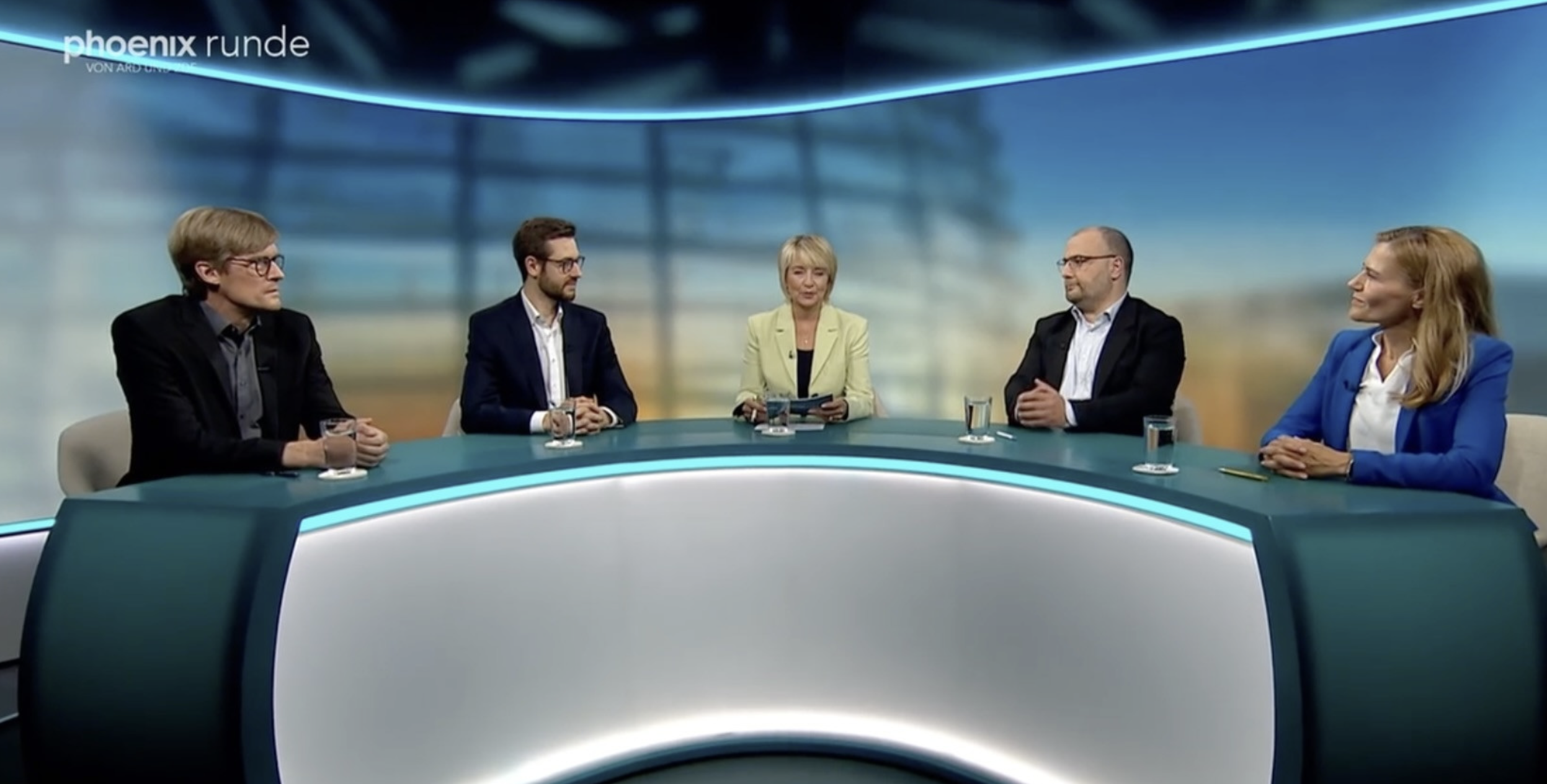
Research for Sustainable Fiscal Policy: Ensuring Intergenerational Justice
We contribute to the public debate not only through media appearances, but also by providing impulses through publications, policy briefs, and scientifically grounded perspectives.
Together with the Bertelsmann Stiftung, we have published a focus paper outlining four principles for a debt brake that is both future-oriented and fair to younger generations.
👉 Download the study as a PDF (German)
Why this matters now: Following the adoption of the financial package after the 2025 federal elections, Germany’s debate on the debt brake has gained new momentum. The reforms – including exceptions for defense spending, a special fund for infrastructure and climate neutrality, and more fiscal flexibility for the federal states – signal a turning point in financial policy. At the same time, they reveal that existing instruments are not sufficient to address long-term challenges.
Our contribution: The focus paper by FiscalFuture and the Bertelsmann Stiftung reviews existing reform proposals from academia and policy research and condenses them into four guiding principles that are, in our view, essential for a sustainable and generation-proof debt rule in Germany: transparency, sustainability, investment capacity, and crisis resilience. These principles show how a modern debt rule can strengthen Germany’s future viability while safeguarding the interests of generations to come.
The study has already been featured in Wirtschaftswoche and The Pioneer.
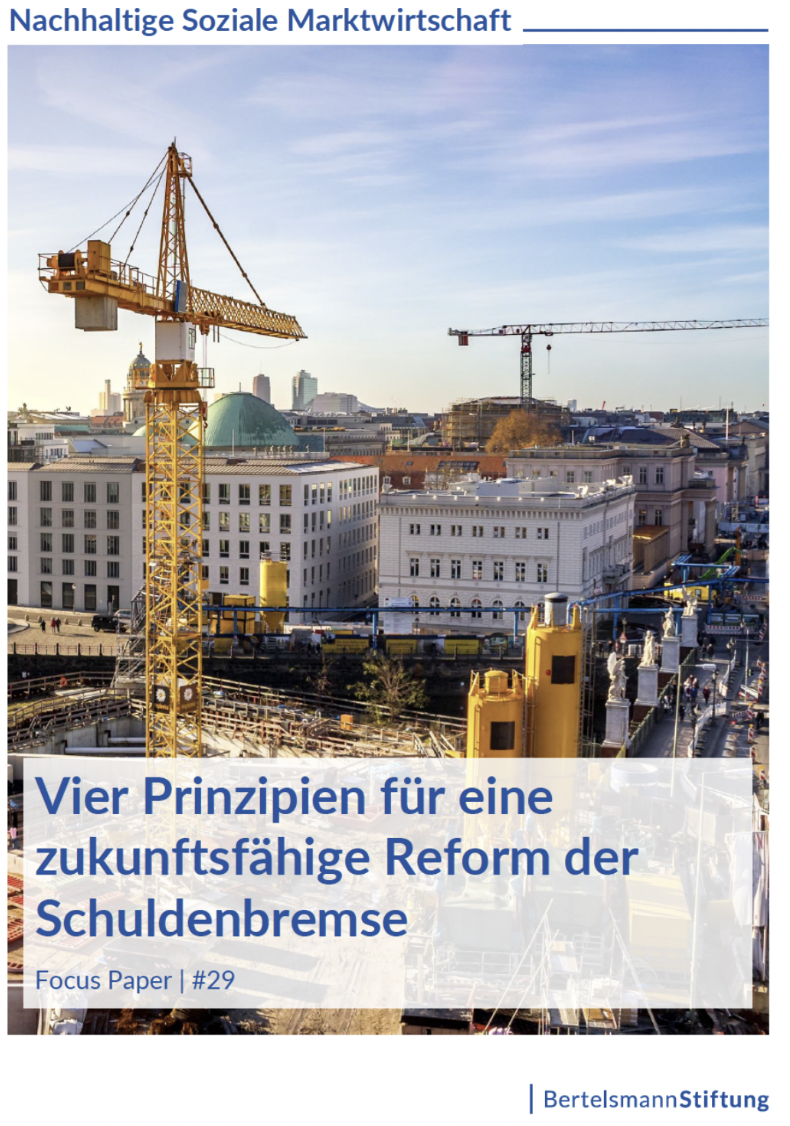
Providing Expertise on Fiscal Policy:
Parliamentary Hearings, Speeches and Education
FiscalFuture is frequently invited to contribute to parliamentary hearings at both the federal and state levels. Additionally, we engage in technical exchanges and panel discussions, deliver speeches, and conduct workshops for other youth organizations. Through these efforts, we aim to connect with a diverse range of relevant audiences and advocate for fiscal policies that meet current as well as future challenges.
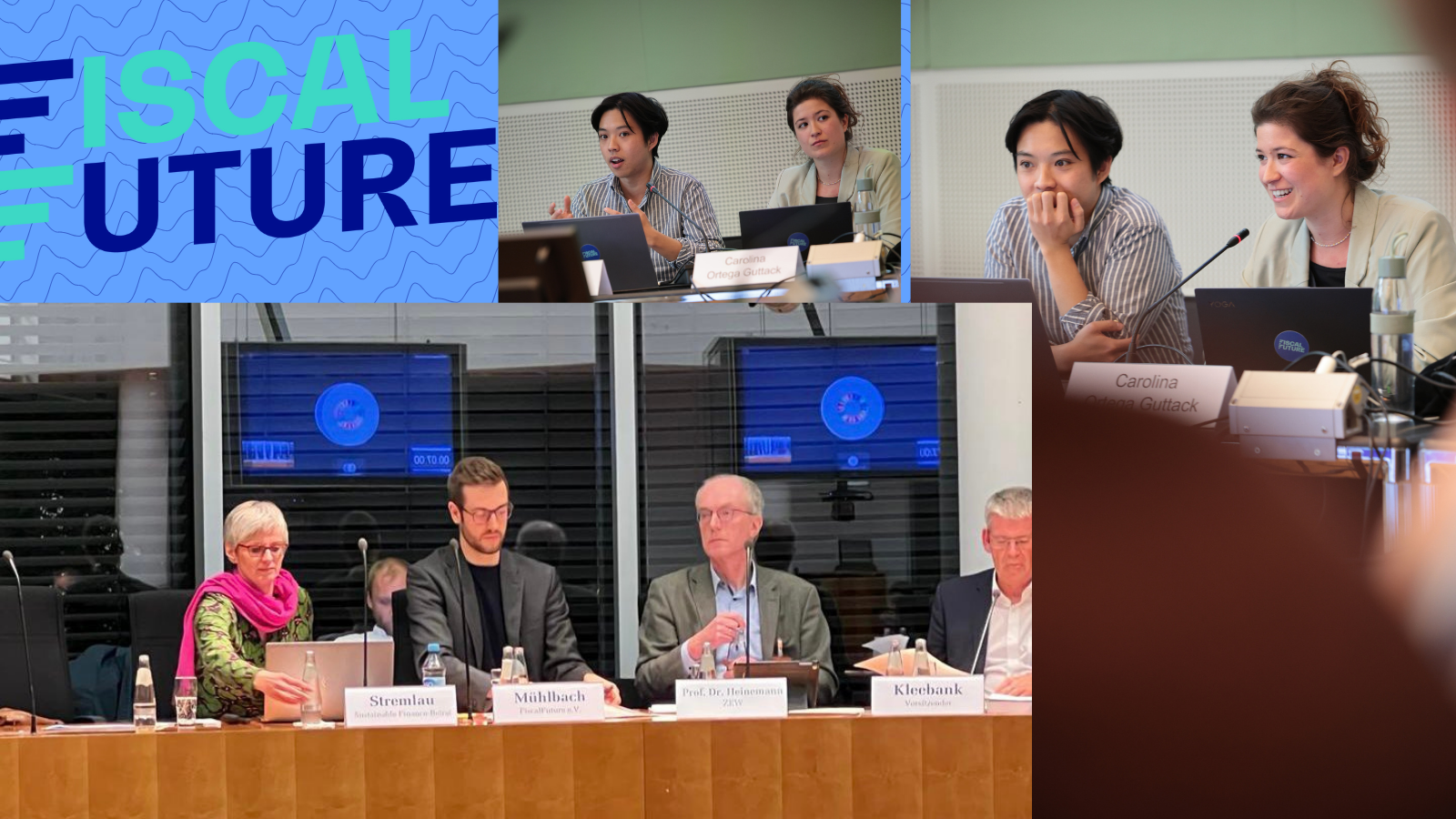
Addressing politics and the public:
Budget cuts endanger our future!
Together with our civil society partners, the German Federal Youth Council, DGB Youth, Fridays for Future, Green Youth & Jusos, we stress: our generation does not need budget cuts, but massive public spending in order to meet the investment needs of the green and social transition! Together, we represent six million members. As youth associations, we emphasize that the planned cuts in the federal budget 2025 are not in the interest of young people. Instead, we call on the federal government to suspend the debt brake and abolish it in the long term! Our open letter was spread by various German mainstream media and gained a great degree of attention in the context of the budgetary debates in the German government :
Table.Media / Spiegel / Spiegel - Lage am Morgen / Zeit Online / ZDF / Stern / Tagesschau

Furthermore, we conducted a rally in front of the Chancellor's Office and the German Parliament, in order to express the youth's protest against the planned budget cuts. Images and videos of the intervention, showing activists masked as Chancellor Olaf Scholz (SPD), Vice-Chancellor Robert Habeck (Greens) and Finance Minister Christian Lindner (Liberals) swinging hammers representing budget cuts repeatedly made it into German mainstream media (RTL, ntv, Bild, taz).
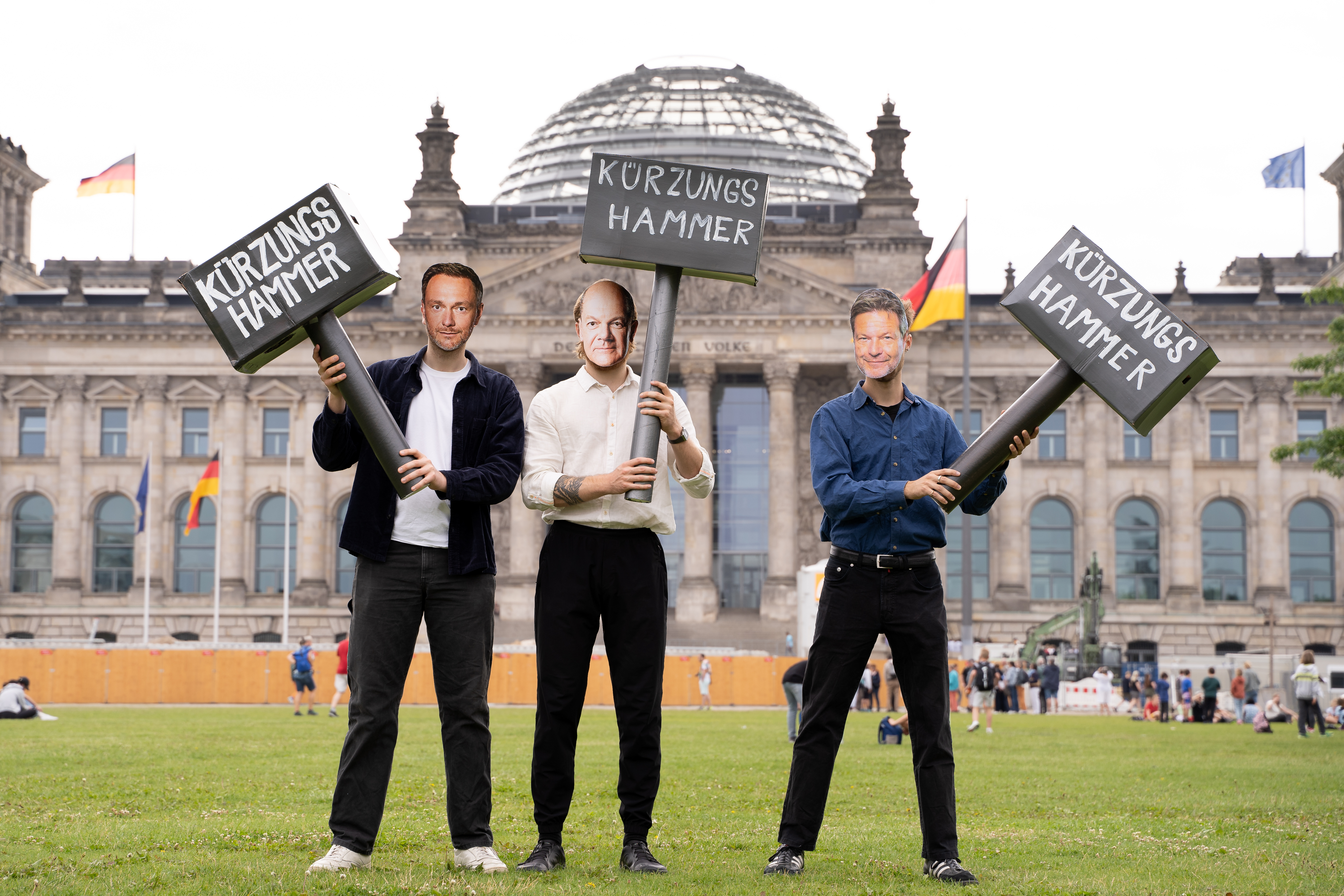
Empowering Communities:
The 2024 Youth Dialogue on Fiscal Policy
About 200 young people participated in the Financial Youth Dialogue, our signature event, on 23 March 2024 in Berlin. Among the participants were numerous youth representatives from civil society organizations, grassroots and political movements, including Juso national chairman Philipp Türmer. They voiced their demands in times of multiple crises and distrust in political decision-making to leading economists and politicians.
The event took place under the slogan “Financing the future, defending democracy!”. The participants discussed the interconnection between the current rise of anti-democratic narratives and right-wing parties and the financial policy decisions of recent years. What are the economic and social consequences of austerity? How can these be adressed, and which financial policy changes are needed now? Among the speakers were high-level experts like Ricarda Lang (Greens), Christoph Meyer (Liberals), Kevin Kühnert (SPD), Yasmin Fahimi (DGB) and Adam Tooze.
It was sponsored by the Berlin State Agency for Civic Education (Landeszentrale für politische Bildung Berlin) and took place in cooperation with the Friedrich Ebert Foundation (party-affiliated foundation of the Social Democratic Party).

